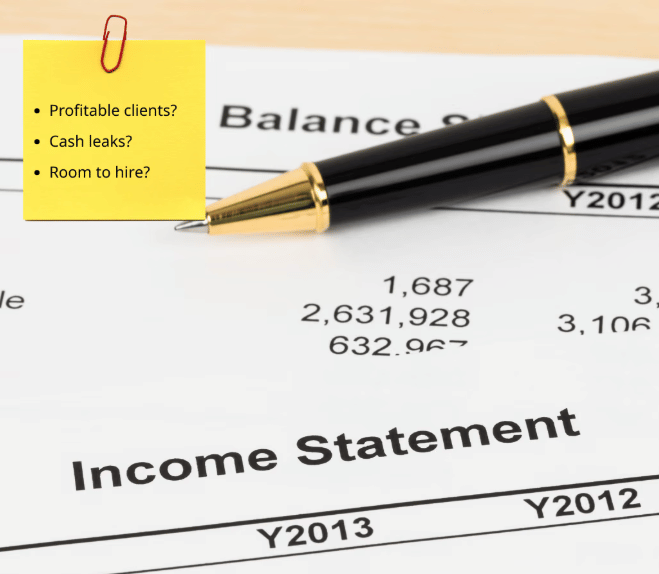
Got an IRS Notice? Here’s What It Means and How to Respond

By Gretchen Roberts

That sinking feeling when you see ‘IRS’ on the envelope? You’re not alone, but most notices are fixable when you understand what triggered the message, what the IRS wants, and how to respond within the deadline.
At Red Bike Advisors, we help clients decode notices, avoid penalties, and turn tax stress into clear next steps. With a steady approach, organized documents, and clear communication, even a tense moment becomes a manageable task.
Understanding IRS Notices
IRS notices are designed to communicate something specific: maybe you owe a balance, the IRS found income that doesn’t match your return, or there’s a math correction. Some notices are simply identity checks; others warn of collection actions. Each notice has a code near the top right — that’s your key to understanding the urgency.
At Red Bike Advisors, we walk our clients through what each code means, whether action is required, and how to respond strategically instead of reactively.
Where To Find the Key Details
The first page usually summarizes the issue, shows the amount the IRS believes you owe or the refund change it plans to make, and lists the response deadline. Later pages explain how the IRS calculated differences and which tax years are affected.
Our advice? Create a simple checklist with the IRS contact info, deadlines, and tasks you need to complete. Having structure lowers stress and ensures nothing slips through the cracks. And if we’re working together, we’ll set up those systems for you so every step is crystal clear.
Common IRS Notices and What They Mean
CP2000 Underreported Income
This is a proposal rather than a final bill. It happens when the IRS spots income (like a 1099 or stock sale) reported by a third party that doesn’t match your return. If you agree, you sign and return the response page; if you disagree, you send documentation that reconciles the difference, showing basis and adjustments.
CP14 and the Balance-Due Series
A CP14 is a first notice that a balance is due. If unpaid, follow-ups often appear as CP501, CP503, and CP504, with each letter becoming more urgent. Early action keeps your options open, including payment plans and penalty abatement, while delaying can lead to liens or levies once the collection process advances.
CP11 and CP12 Math Error Corrections
These notices reflect an IRS math error adjustment, sometimes tied to credits such as the Child Tax Credit or premium tax credit. The IRS changes the return and explains the calculation. If the correction is wrong, you can request a reversal within the timeframe listed, and you should include records that prove the original figures were correct.
5071C and 4883C Identity Verification
Fraud is on the rise everywhere, including with tax returns. Identity verification letters ask you to confirm you filed the return before the IRS processes a refund or posts the return.
You verify online or by phone and may need your prior-year return, the current notice, and a photo ID. Verifying quickly prevents delayed refunds and reduces the risk of identity-related account holds.
Letter 3219 Statutory Notice of Deficiency
This formal notice sets a strict deadline to file a petition with the United States Tax Court if you disagree with the proposed changes. You can still work with the IRS during this period, but the clock is firm. Immediate action matters here. Missing the deadline can limit your ability to challenge the assessment without paying first.
LT11 and CP90 Intent To Levy
An intent-to-levy notice warns that the IRS will begin enforced collection from wages or bank accounts if you do not respond. You have rights to appeal and to request a Collection Due Process hearing within the specified period. Acting before the levy date preserves the broadest menu of solutions such as installment agreements, hardship status, or offer-in-compromise review.
Notice of Federal Tax Lien
A lien notice informs you the government has filed a public claim against your property to secure a tax debt. While a lien is not a levy, it can affect credit and complicate refinancing or sales. Addressing the underlying liability, requesting lien withdrawal when eligible, or moving into a compliant payment plan can improve outcomes over time.
First Steps To Take Within the Deadline
When a notice arrives:
Create a digital file folder with the notice and related documents.
Read carefully and research the action requested.
Note the response deadline on your calendar.
If it’s straightforward, you may be able to fix it with one letter. If it’s more complex, that’s where we come in.
A Clear Route to Resolving Your Tax Issues
While some notices are straightforward and can be handled by you, many of them are not. And there’s nothing that strikes more fear into the heart of a taxpayer than receiving an IRS or state taxing authority notice.
(Even our hearts skip a beat when those letters arrive, and we’re seasoned pros.)
That said, our credentialed, qualified team is authorized to represent you in front of the IRS and state tax authorities. We’ve done this hundreds of times and have a time-tested approach and successful track record of solving complex issues.

Here’s the playbook we guide clients through:
Free consultation: We’ll review your exact situation and diagnose the problem.
Investigation: You authorize us to represent you to the tax authorities, and we communicate with the IRS or state tax authority and uncover issues and solutions.
Compliance: If applicable, we prepare your unfiled past due tax returns to determine actual tax liability.
Resolution: We negotiate a resolution with the IRS or state tax authority on your behalf.
Freedom: Put this nightmare behind you and start living your life without the burden of tax debt.
Documents That Strengthen Your Case
The IRS loves clarity. We guide clients through the collection of documentation such as:
Copies of the notice and all pages of the original tax return for the year in question
Third-party forms such as W-2s, 1099-NEC, 1099-MISC, 1099-INT, 1099-DIV, and 1099-B
Brokerage gain and loss reports that show basis, holding periods, and wash sales
Bank statements and canceled checks that document deductible expenses
Receipts, mileage logs, and invoices that connect directly to claimed deductions
Prior correspondence with the IRS that relates to the same year or issue
Disputing a Notice Effectively
The key to a successful dispute? Story first, proof second. At Red Bike Advisors, we don’t just drop documents on the IRS — we create a clear narrative and back it up with evidence. Whether it’s missing cost basis on a stock sale or an incorrectly adjusted credit, we explain, cite, and document so your case is easy to approve.
Payment Options When You Owe
If the notice is correct and you owe, you still have options. A full payment stops additional penalties and interest from accruing. When full payment is not realistic, a short-term plan can cover balances that you can clear within a few months. Longer-term installment agreements spread payments over time and require that you stay current on future filings and payments.
Some taxpayers qualify for an offer in compromise, which is a settlement for less than the full amount based on ability to pay. Eligibility depends on income, expenses, assets, and the reasonable collection potential the IRS calculates from your financial picture. Preparation and documentation are critical for this route, so careful analysis ahead of time saves wasted effort.
Penalty Relief and Reasonable Cause
Penalty abatement can reduce or remove penalties in certain situations. First-time abatement may apply if you have a clean three-year history and meet filing and payment conditions. Reasonable cause relief may apply when you exercised ordinary business care and prudence but still failed to file or pay on time because of circumstances such as serious illness, natural disasters, or other significant events. The key is to connect the facts to the standards and provide proof like hospital records or insurance reports.
Interest is harder to abate because it compensates the government for the time value of money. However, if penalties are removed and the balance is reduced, the associated interest can decline as well. Building a precise request with supporting evidence gives you the best chance.
If You Cannot Pay Right Now
When finances are tight, the IRS can place an account in currently not collectible status, which pauses active collection after you provide a financial statement. Interest continues to accrue, but levies stop while your status remains in place. This option requires accurate monthly income and expense information.
Another path is to adjust withholding or estimated payments going forward so you do not compound the problem in the next filing season. Staying current is a prerequisite for most payment agreements, and it reduces stress because you are no longer falling behind.
Protecting Your Rights During Collection
You have the right to be informed, to quality service, to pay no more than the correct amount of tax, and to challenge the IRS’s position and be heard. Collection notices include the right to appeal and timelines for requesting a hearing. Filing a timely appeal can halt certain actions while your case is reviewed by an independent office, which often opens more flexible resolutions.
Good record-keeping is your best defense. Save every notice, keep copies of your responses, and log every call with dates, times, and the names or ID numbers of the representatives you speak with. A neat file shortens future calls and prevents repeated requests for the same documents.
How Red Bike Advisors Helps
When a notice arrives, you don’t just need a tax professional — you need a partner. We decode the notice, pull transcripts, reconcile differences, and prepare a response that’s organized, persuasive, and timely. If you owe money, we help you set up a realistic payment plan and explore penalty relief. If the IRS is wrong, we fight to prove it.
And most importantly, we help you put systems in place so these surprises don’t keep showing up. That’s our “Know Your Numbers” approach — clarity, confidence, and control in your financials and taxes.
Real Stories. Real Relief.
Our clients’ privacy is of the utmost importance to us, but here are a few true stories of how we’ve helped clients resolve their tax issues and move on with their lives.
From $40,000 to $1,000 Settlement
"When we got a notice from the IRS, the Red Bike Advisors tax resolution team were right there to help us navigate it. The IRS said we owed around $40,000 in unpaid taxes and penalties, but Red Bike Advisors was able to negotiate that amount down to $1,000."
From $352,000 to $3,500
A client of Red Bike Advisors received a balance due notice from the IRS that, with penalties and interest, amounted to nearly $352,000. We prepared a response and were able to reduce the tax bill down to just $3,500.
Smart Habits That Prevent Future Notices
Strong habits = fewer notices. So:
Track all expected tax forms and compare them with what actually arrives each January.
Download complete brokerage gain and loss reports (not just summaries).
Reconcile contractor payments to 1099-NEC forms
File on time with correct direct deposit info and pay estimated taxes quarterly if you are self-employed
If you own a small business, keep clean books and documentation for every expense, deduction, and credit.
Save PDFs of every return, extension, and payment confirmation.
These proactive steps align with our mission: moving from reactive tax stress to proactive financial strategy.
Talk to Red Bike Advisors Today
If a notice just landed in your mailbox, take a breath, open the letter, and mark the response date on your calendar.
Then gather the documents that relate to the issue, and draft a short summary of your position. And remember — you don’t have to face the IRS alone. Red Bike Advisors helps you move from anxious to confident with a clear plan, organized paperwork, and expert guidance. We make sure you respond the right way, avoid costly penalties, and build systems that keep you ahead of the game.